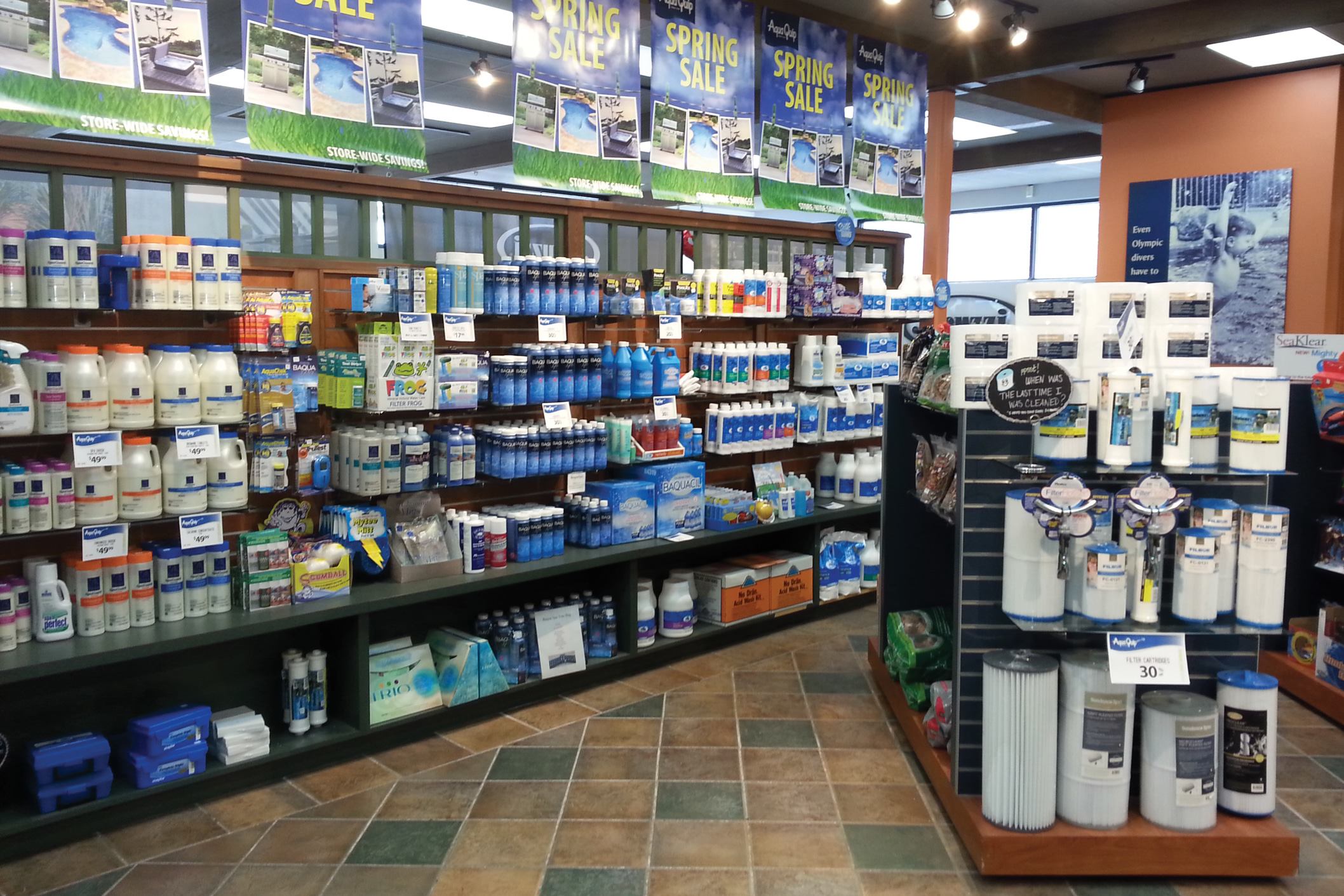Professional dealers increase their chances of retaining customers when they use private labeled products.
Mass merchants, home centers, chain stores and e-commerce behemoths like Amazon provide pool owners with more choices of water care products than ever before. Armed with a smartphone, shoppers can instantly scan a UPC code and compare prices of nationally branded products right in a dealer’s store.
Dealers who employ a private label chemical strategy do not face this challenge. Customers measure their private label brands based on quality, selection, and ease of application rather than where they can get a better price for the same brand-name product.
Shoppers who compare national chemical brands often disregard ingredient strength in favor of price. A private-label program opens the door for dealers to highlight label ingredients and point out advantages over well-known national brands that are available at mass stores such as Walmart or a professional competitor down the street who carries widely distributed brands.
Having your own brand of chemicals ensures that your customers know where the products were purchased and where they will want to return to replenish them, or to solve a pool/spa-related problem.
A recent article in SmallBizTrends (August 2019) cited a very concerning statistic. A typical American business loses 15% of its customers each year. An increase in retention of just 5% of these customers can add up to 25% more in profits, the article goes on to say.
In the swimming pool industry, where sales are mostly seasonal, these statistics demands even more attention because the selling period available to make up for customer defections is limited. Studies show that loyal customers increase their purchases in stores they trust year over year.
Finally, when you consider that it is five to 25 times more expensive to acquire a new customer than holding on to an existing one, the case for integrating private-label chemicals becomes even stronger.
Pool builders who include private label chemicals as part of their pool package have the best chance of establishing loyal shoppers for years to come. This is when customers are listening in earnest and are more open to learning about the benefits of full-strength products as well as other differentiating factors. Additionally, dealers can create warranty programs built around their own chemical line.
Initiating a successful private-label strategy requires good planning. Label designs, product selection, stocking levels, state registrations and reliable product deliveries are all ground-floor entry points. Beyond that, a full-on integration strategy will help ensure the program’s success. Below are some things to consider if you are thinking about launching a private-label chemical program:
1. What is the overall brand strength of your business?
Private label programs do best when they are an extension of a well-coordinated marketing program.
Just putting your company name on a chemical line is not enough. Successful programs have well-thought-out integration and promotional strategies behind them. The value that these products bring to your customers must be front and center, which means boldly explaining the advantages they provide in general as well as over products available at mass merchants or through e-commerce behemoths.
In-store signage and homepage features are a good start. For dealers who actively post on social media, things such as problem solving or pool care tips can prominently feature use of your brands.
2. What should the chemical label look like?
This all depends on whether you are starting from scratch or already using your brand on other products. Even then, a different approach to how you package and present your chemicals may be in order.
Once you decide that you want to have your own label, take your time to decide how you want it to look.
A qualified private label chemical manufacturer can guide you through the process. They understand package options, popular sizes, and EPA requirements that will govern the overall look of regulated packaging. They also can help find ways to make sure that the presentation of your own branded products is appealing.
3. What are some of the most important things for a dealer to consider when integrating a private-label chemical program into their sales process?
The very first thing to remember is that pool chemicals are not a discretionary purchase.
Pool owners need chemicals to keep their water sanitized, balanced and algae-free. They are critical from pool opening to pool closing. This positions chemicals as a gateway to repeat business and more store visits.
Your sales and technical staff should be knowledgeable about what your private-labeled products contain and how they stack up compared to national brands.
Take time to prepare an application guide that provides your customers clear directions for using your brand-named products. You can easily program your computer water-balance software to deliver recommendations based on your branded products.
As mentioned earlier, if you build pools, your brand of chemical products should be part of the program offered to homeowners from the start.
4. How long does it take to implement a private-label chemical program?
There isn’t a one-size fits all answer to this question. However, in as little as a couple months, a new program can be implemented. Sitting down with a professional who understands the steps to implementation will lead to matching the process to your individual needs.
Lastly, your success will depend on a private-label manufacturer that can reliably replenish your chemical brand at the height of season when a lost sale could mean a lost customer.




